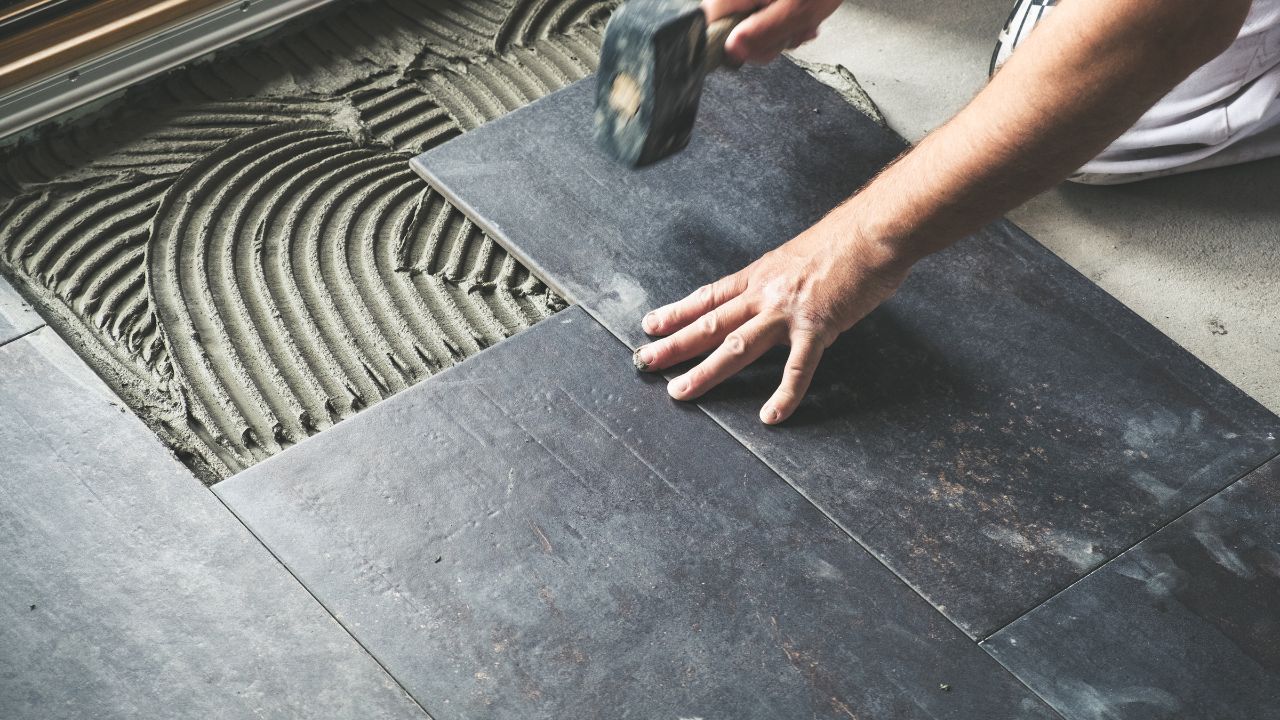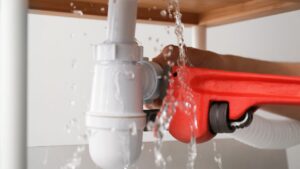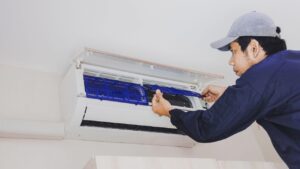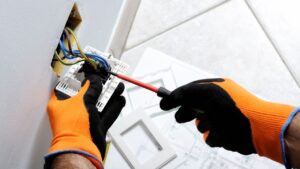Renovating a condominium apartment in Singapore is quite different compared to the process for Housing & Development Board (HDB) flats.
To start renovating your private condo unit, the homeowner is required to satisfy the requirements of two separate entities:
- The Building and Construction Authority (BCA)
- The Management Corporation Strata Title (MCST), the managing body of the individual condominium development.
1) Getting Renovation Approval From The Management Corporation Strata Title (MCST)
The MCST is a legal entity established to administer and oversee the common property of strata developments, such as private condominiums and commercial buildings. A MCST is basically the management office or governing body of your condominium.
i. Why Do You Need The Permission Of The MCST?
A key part of a MCST’s mandate is to enforce the development’s by-laws, which are rules and regulations legally binding on all residents and tenants.
Their job is to ensure that no single resident’s renovation work compromises the building’s structural integrity, safety, or overall appearance, or excessively disturbs other residents.
ii. What You Will Typically Need To Submit To Your MCST
- Renovation Application Form: Your condo management office will provide this.
- Detailed Renovation Plans: This includes floor plans and drawings from your interior designer (ID) or contractor showing what you intend to do. The submission must include detailed renovation drawings and any necessary certifications signed by professionals such as engineers and architects, as specified by the by-laws.
- Contractor’s Details: You’ll need to provide information about your chosen contractor, including their licenses and insurance.
- Renovation Deposit: This is a refundable security deposit. The amount varies between condos (usually from $1,000 to $2,000). It’s held to cover any potential damage to common areas like lifts, lobbies, or corridors during the renovation.
You’ll get it back after the work is completed and the common areas are inspected and found to be in good condition.
iii. House Rules For Renovation In Your Condo
Your MCST will also give you a list of by-laws for renovation. These are the “house rules” which might vary from condo to condo, They include rules like:
- Approved renovation hours (e.g., 9 AM to 5 PM, Mondays to Fridays with no work permitted on Sundays or public holidays).
- Rules on noisy works like hacking and drilling. Such works may be subject to limited hours.
- Requirements for protecting common areas.
- Proper disposal of all renovation debris in designated areas, in compliance with regulations set by the National Environment Agency (NEA) and the estate’s specific rules.
- Any external modifications, such as the installation of window grilles or balcony screens, are highly regulated to preserve the building’s uniform aesthetic and must conform to pre-approved designs.
Pro-Tip: Talk to your condo management before you even confirm your contractor. They can give you the guidelines upfront, saving you and your ID a lot of time.
2) When Do You Need Approval From BCA For Renovating Your Condo?
For most internal cosmetic changes (e.g. carpentry, painting, re-tiling floors), your MCST approval is all you need. While the MCST governs internal development rules, the BCA’s jurisdiction extends to works that could affect the safety of the building as a whole.
A BCA permit is required for any “additions and alterations, or reconstructive works” on a private property that involve structural changes (e.g. demolition of a load-bearing column).
Minor, non-structural works, sometimes referred to as “insignificant building works,” are exempt from this requirement.
You will probably need permits if your renovation involves:
- Hacking or demolishing walls: Especially if a wall is a load-bearing one (which is often not allowed). For any wall demolition, you’ll need a Professional Engineer (PE) to endorse the plans and confirm it’s not a structural element.
- Changing your external windows or balcony doors: The building’s facade (its external appearance) is tightly controlled to maintain a uniform look. Any changes here require approval.
- Building or removing a mezzanine floor: This is a major structural change that definitely needs a permit.
- Relocating major plumbing or sanitation pipes.
Who Handles Getting The Right Government Permits?
Your contractor or ID should be the one to guide you. If you need a permit from the BCA, it must be submitted by a Qualified Person (QP), who is usually an architect or a Professional Engineer (PE), to submit the plans for you. This is not something a homeowner is expected to do on their own.
The BCA’s reliance on a professional intermediary places the legal burden of technical compliance and safety on a qualified expert, not the layperson homeowner. This approach ensures a high standard of professional accountability for public safety.
The BCA Permit Application Process For Condo Renovation
The application process is a multi-step journey managed by the QP. The QP first prepares and submits detailed building plans to the BCA for approval. If the project involves structural works, the QP must also submit separate structural plans that are endorsed by a professional engineer, certifying that the building can safely handle the proposed alterations.
The final step is a joint application for a permit to carry out building works, which must be submitted by the building owner, the QP responsible for the works, and the builder who will perform them. This joint application creates a system of distributed legal responsibility, where multiple parties are accountable for the work.
The Cost Of Applying For A BCA Permit For Condo Renovation
While the administrative fee for a BCA plan submission may only be a few hundred dollars , this figure is a minor fraction of the true financial outlay.
The real cost lies in the mandatory professional fees for the QP’s services, which can range from $800 to over $5,000 for structural endorsement and plan preparation.
The BCA permit is not just a piece of paper, but the final outcome of a costly and technically complex process handled by specialized professionals.
3) Other Permits You Need After You Start Your Condo Renovation
A. The Renovation Contractor
For a condominium project, it is mandatory to engage a contractor who is registered with the BCA. It is important for a homeowner to verify a contractor’s credentials. Doing your due diligence is the only way to avoid legal and financial risks. Find out what licenses and credentials a renovation contractor should have.
B. Licensed Electrical Worker (LEW), PUB Licensed Plumber And Other Licensed Contractors
You will need a Licensed Electrical Worker (LEW) for any electrical rewiring or modifications that exceed standard capacity and a PUB Licensed Plumber for water service and sanitary works.
Additionally, for any window replacement, a BCA-approved window contractor must be engaged.
It is good to note that there is a distinction between “HDB-registered” contractors and the broader “BCA” licensing for condo renovations.
A homeowner may encounter both “HDB-registered” and “BCA-licensed” contractors in their search for a renovation contractor. These are not interchangeable terms. HDB’s Directory of Renovation Contractors (DRC) is a specific list for public housing, whereas BCA registration applies to builders and encompasses a wider scope of complex works.
Conclusion
The permit process is a critical step and not a parallel task that can be handled simultaneously with renovation.
Getting approval must happen before any renovation work can begin. Therefore delays in this phase, caused by incomplete documentation or non-compliant designs, will pushing back the entire project timeline.
This means the approval process is a major bottleneck. To mitigate this risk and prevent delays, it is important for homeowners to hire experienced professionals and properly licensed contractors.







